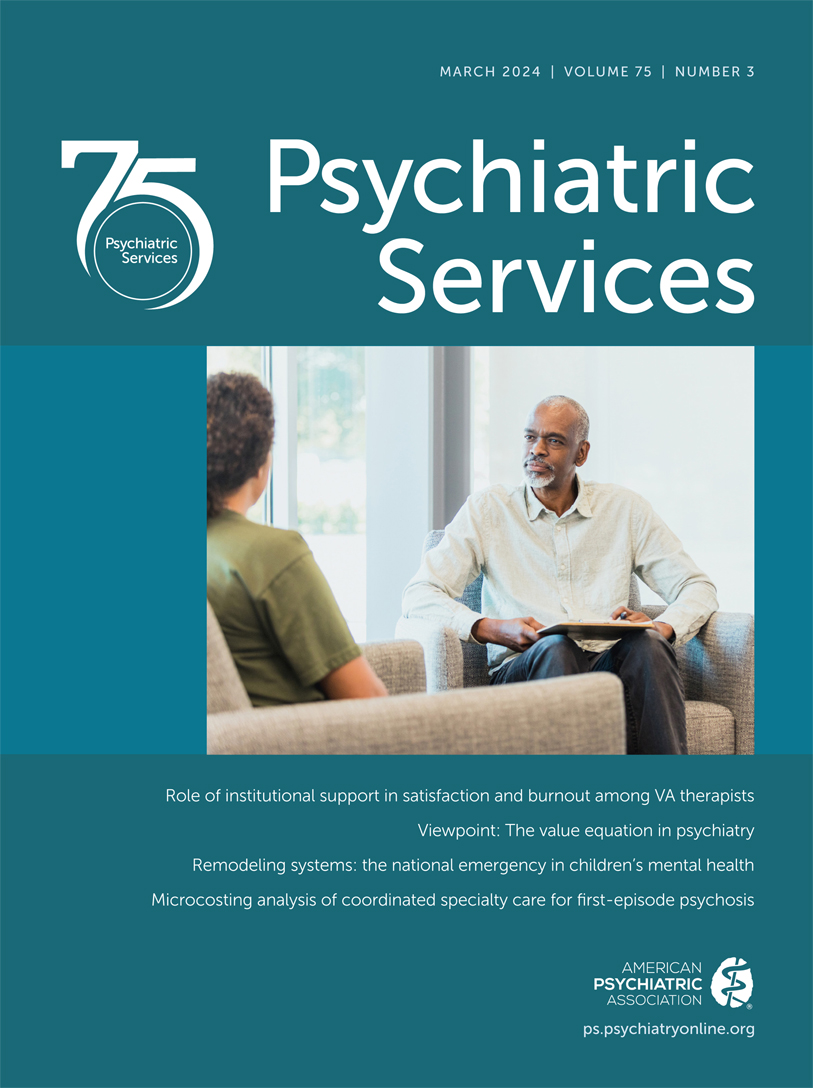Brief Cognitive-Behavioral Therapy for Depression in Community Clinics: A Hybrid Effectiveness-Implementation Trial
Abstract
Objective:
The authors examined whether brief cognitive-behavioral therapy (bCBT) for depression, delivered by mental health providers in community-based outpatient clinics (CBOCs) of the Veterans Health Administration, improved depression outcomes and was feasible and acceptable in clinical settings.
Methods:
The authors used a type-2 hybrid effectiveness-implementation, patient-randomized trial to compare bCBT with enhanced usual care. Participants (N=189) with moderate symptoms of depression (Patient Health Questionnaire–9 [PHQ-9] score ≥10) were enrolled from CBOCs in the southern United States. bCBT (N=109) consisted of three to six sessions, delivered by mental health providers (N=17) as part of routine clinic practices. Providers received comprehensive training and support to facilitate bCBT delivery. Recipients of enhanced usual care (N=80) were given educational materials and encouraged to discuss treatment options with their primary care provider. The primary effectiveness outcome was PHQ-9–assessed depression symptoms posttreatment (4 months after baseline) and at 8- and 12-month follow-ups. Implementation outcomes focused on bCBT dose received, provider fidelity, and satisfaction with bCBT training and support.
Results:
bCBT improved depression symptoms (Cohen’s d=0.55, p<0.01) relative to enhanced usual care posttreatment, and the improvement was maintained at 8- and 12-month follow-ups (p=0.004). bCBT participants received a mean±SD of 3.7±2.7 sessions (range 0–9), and 64% completed treatment (≥3 sessions). Providers delivered bCBT with fidelity and reported that bCBT training and support were feasible and effective.
Conclusions:
bCBT had a modest treatment footprint of approximately four sessions, was acceptable to participants and providers, was feasible for delivery in CBOCs, and produced meaningful sustained improvements in depression.
Access content
To read the fulltext, please use one of the options below to sign in or purchase access.- Personal login
- Institutional Login
- Sign in via OpenAthens
- Register for access
-
Please login/register if you wish to pair your device and check access availability.
Not a subscriber?
PsychiatryOnline subscription options offer access to the DSM-5 library, books, journals, CME, and patient resources. This all-in-one virtual library provides psychiatrists and mental health professionals with key resources for diagnosis, treatment, research, and professional development.
Need more help? PsychiatryOnline Customer Service may be reached by emailing [email protected] or by calling 800-368-5777 (in the U.S.) or 703-907-7322 (outside the U.S.).



